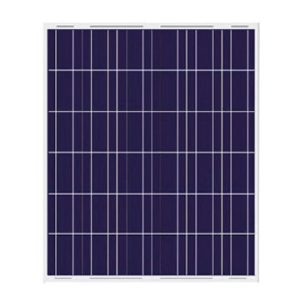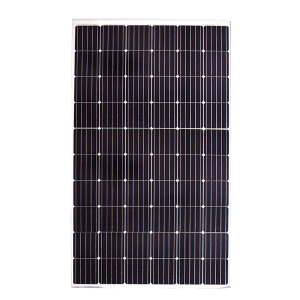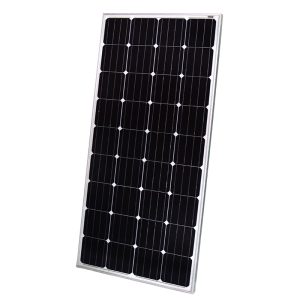As Pakistan grapples with rising energy demands and the adverse effects of climate change, the adoption of renewable energy sources has become increasingly crucial. Among the various solar panel options available in the market, 360W solar panels have emerged as a popular and affordable choice for residential and commercial installations across the country.
Overview of 360W Solar Panels
360W solar panels strike an optimal balance between power output and cost-effectiveness, making them an attractive option for meeting the energy needs of small to medium-sized households and businesses in Pakistan. These panels typically feature reliable polycrystalline or monocrystalline solar cells arranged in an efficient cell design, often with 144 cells and configurations like 5BB (5 Bus Bars) or MBB (Multi-Busbar).
One of the key advantages of 360W solar panels is their durable anodized aluminum frames, which not only provide structural integrity but also offer impressive snow load ratings of up to 5400 Pa and wind load ratings of up to 3600 Pa. Additionally, many 360W panels are designed with Potential Induced Degradation (PID) resistance, ensuring long-term performance and reliability.
In terms of efficiency, 360W solar panels typically range from 15% to 22%, with monocrystalline panels often exhibiting higher efficiency rates compared to their polycrystalline counterparts.
Pricing and Factors Affecting Cost
According to industry experts and market research, the average price range for a 360W solar panel in Pakistan is approximately Rs. 15,000 to Rs. 18,000.[4] However, it’s important to note that several factors can influence the cost of these panels, including:
- Brand and Quality: Tier 1 brands, known for their reputation and quality assurance, tend to be more expensive than lesser-known or lower-tier brands.
- Type of Solar Panel: Monocrystalline solar panels generally command a higher price point compared to polycrystalline panels due to their higher efficiency and performance.
- Size and Efficiency: Larger panels with higher wattage ratings and efficiency levels typically cost more than their lower-wattage counterparts.
- Additional Components: The total cost of a solar system installation also includes other essential components like inverters, batteries (for solar-plus-storage systems), and mounting systems, which can significantly impact the overall expenses.
Popular 360W Solar Panel Brands in Pakistan
Several reputable solar panel manufacturers offer 360W models in the Pakistani market, catering to the growing demand for affordable and efficient solar solutions. Some of the popular brands and models include:
- Canadian Solar: Known for reliable polycrystalline and monocrystalline panels, with models like the CS3U-360P and HiHero series.[1][3][6][7][16]
- Jinko Solar: Offers both monocrystalline and polycrystalline options, with models such as the Tiger Neo series.[8]
- Trina Solar: Provides high-efficiency monocrystalline panels, including the TSM-390-DE09C07 model.[4]
- JA Solar: Manufactures polycrystalline and monocrystalline panels, like the JAM54-S31-390MR.[4]
- LONGi: Known for its HIMO 6 series and other high-efficiency monocrystalline panels.
Installation and Additional Costs
While the solar panels themselves are a significant component of the overall cost, it’s essential to consider the additional expenses associated with a complete solar system installation in Pakistan. These costs may include:
- Inverters: Responsible for converting the solar energy into usable electricity for your home or business.
- Batteries: For solar-plus-storage systems, which allow you to store excess energy for use during non-sunlight hours.
- Mounting Systems: Specialized racking and mounting equipment to securely install the solar panels on your roof or ground.
- Installation Labor: The cost of professional installation services, which can vary depending on the complexity of the project.
- Permits and Approvals: Fees associated with obtaining the necessary permits and approvals from local authorities.
Government Incentives and Subsidies
To promote the adoption of solar energy and encourage sustainable practices, the Pakistani government has implemented various incentives and subsidies for solar panel installations.[4] These initiatives can help offset the upfront costs and make solar power more accessible to homeowners and businesses across the country.
By taking advantage of these incentives and subsidies, consumers can potentially reduce the overall cost of their solar panel system, making it a more financially viable investment in the long run.
Advantages of 360W Solar Panels
Beyond their affordability, 360W solar panels offer several advantages that make them an attractive choice for Pakistani consumers:
- Impressive Power Generation: With their optimal wattage rating, 360W solar panels can generate sufficient power to meet the energy needs of small to medium-sized households and businesses.
- Space Optimization: These panels strike a balance between size and power output, allowing for efficient use of available installation areas, whether on rooftops or ground-mounted systems.
- Long-term Cost Savings: While the initial investment in a solar panel system may be substantial, the long-term savings on electricity expenses can offset these costs over time, making it a financially prudent choice.
- Environmental Sustainability: By harnessing the power of the sun, 360W solar panels contribute to reducing Pakistan’s reliance on fossil fuels and mitigating the impact of greenhouse gas emissions.
Alternatives to 360W Solar Panels
While 360W solar panels offer an attractive combination of affordability and performance, some consumers may have specific energy requirements that necessitate exploring alternative options. For those seeking higher power output, alternatives like 550W to 600W solar panels are available, although they may come at a higher cost.[14]
Brands such as Longi, Jinko, and Canadian Solar offer a range of wattages to choose from, allowing consumers to select the most suitable option based on their energy needs and budgets.
In conclusion, the availability of affordable 360W solar panels in Pakistan presents a promising opportunity for individuals and businesses to embrace sustainable energy solutions. By carefully considering factors such as pricing, brand reputation, and additional installation costs, consumers can make informed decisions and take advantage of government incentives to make the transition to solar power more accessible and cost-effective.
As Pakistan continues to prioritize renewable energy sources and address the challenges of climate change, the adoption of 360W solar panels can play a crucial role in reducing the country’s carbon footprint while providing reliable and affordable energy solutions for years to come.



